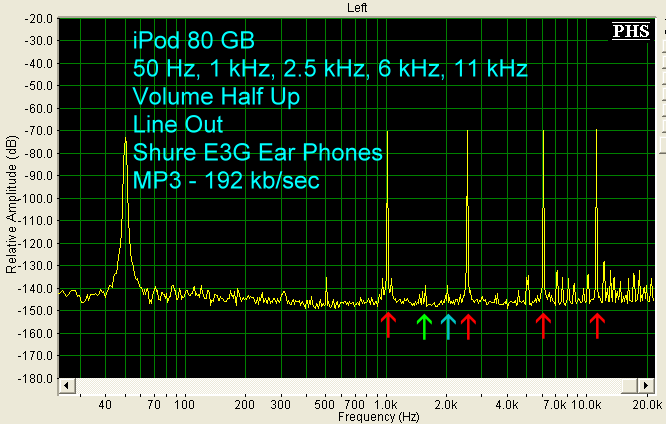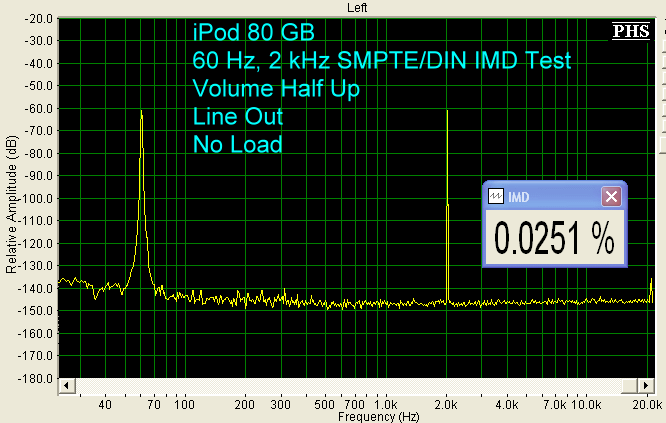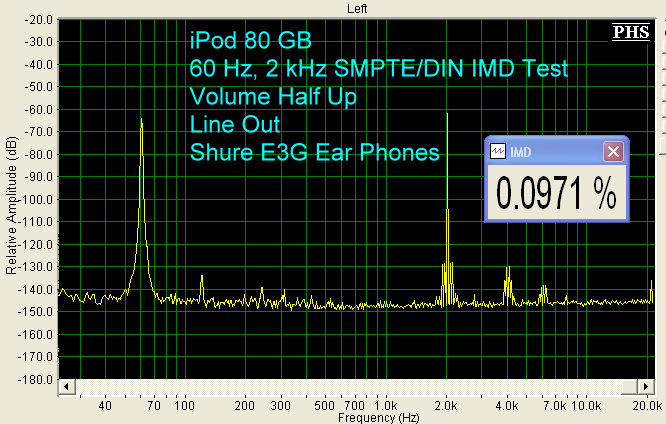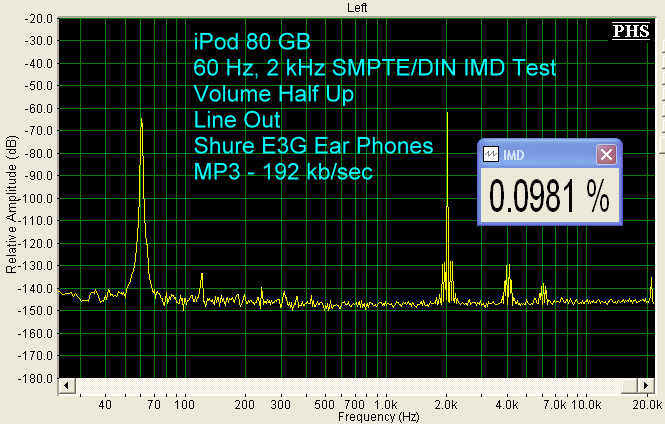|
||||||
|
The following two graphs compare combination signals at 50 Hz, 1 kHz, 2.5 kHz, 6 kHz, and 11 kHz, in Apple Lossless vs. MP3 (192 kb/sec) files. Notice the base of the fundamental peaks pointed out by the red arrows. They are more concave with the MP3 version, indicating increased amounts of IMD. The harmonics (green and blue arrows) appear about the same, although there may be a bit more concavity there too. So, there is increased distortion by compressing CD tracks to MP3 format. How audible the added IMD is will depend on how good your ears are. I am surprised really. I thought MP3 compression effects would be much more.
Our standard SMPTE/DIN IMD test showed in increase in IMD with no load vs. load, but there was no appreciable difference between Apple Lossless vs. MP3. This is because 192 kb/sec is enough to encode a simple waveform like the two sine waves in this test.
Conclusions The iPod - any MP3 player in fact - has the potential to be an audiophile product. The extraordinarily low noise floor, coupled with acceptably low distortion, delivers detailed highs in the music. However, the declining frequency response from 10 kHz on down results in poor midrange, and unacceptable bass. From the published literature, poor bass is common in portable MP3 players. It's not the ear phones. It is the players. MP3 players are now a commodity. It is time to fix the problem so we can listen to the music in high fidelity. It should not be a difficult task, nor should it be expensive. But, so far, no company has bothered to do it. But, someone out there is listening, and they will put in that additional capacitor, or tweak the circuit here and there. The result will be a truly flat frequency response. The EQ functions that players have, including the iPod, can improve the bass, but they add distortion. That is not good enough. The masses are paying attention to which players sound the best. http://reviews.cnet.com/4520-11297_7-6510133-1.html First, that is where the audiophile dollars will go. Shortly after that, the non-audiophile consumers will say, "You know? That one does sound better. I guess I'll buy it instead."
- John E. Johnson, Jr. -
|
||||||








